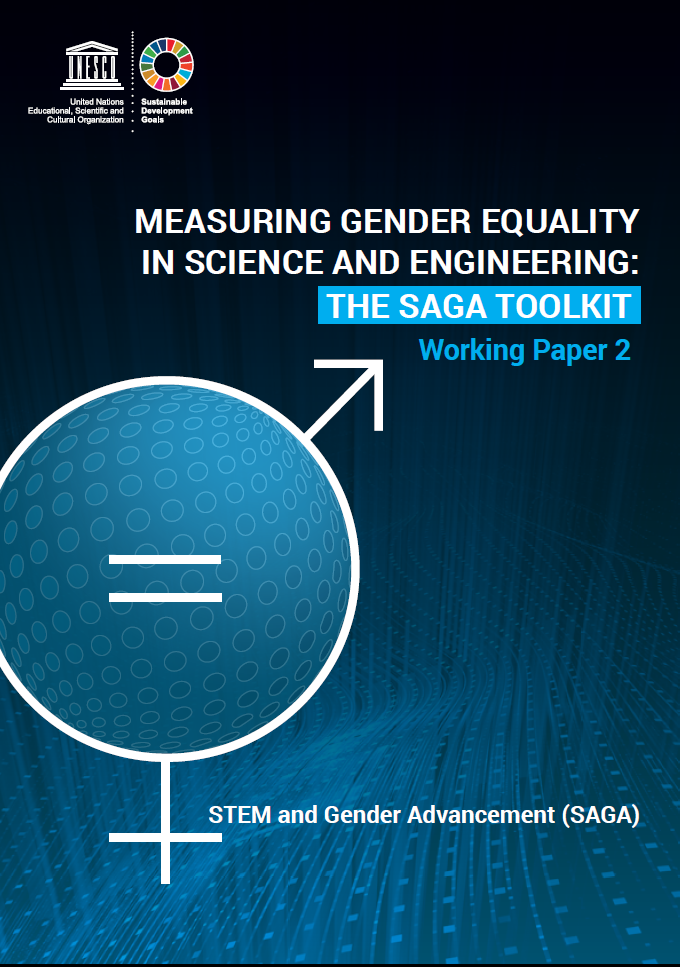Measuring Gender Equality in Science and Engineering : The SAGA Toolkit
Abstract
Measuring Gender Equality in Science and Engineering: the SAGA Toolkit is a product of SAGA (STEM and Gender Advancement), a global UNESCO project supported by the Government of Sweden through the Swedish International Development Cooperation Agency (Sida). SAGA’s main objective is to offer governments, policy-makers and other stakeholders a variety of tools to help decrease the current global gender gap in science, technology, engineering and mathematics (STEM) fields which varies across fields and exists at all levels of education and in research. This goal is achieved using two approaches, namely, by an evaluation of policies affecting gender equality in STEM, and by the identification and design of indicators linked to science, technology and innovation (STI) policies, to enable evidencebased policy-making. Thus, the SAGA initiative will help to: build capacity for the collection of data on gender in STEM; improve the measurement and evaluation of women’s and girls’ situation in science; identify gaps in the policy mix and improve national STI policies related to gender, based on evidence; reduce the gender gap in STEM at all levels of education and in research; and increase the visibility, participation and recognition of women’s contributions in STEM. The SAGA project contributes to the promotion of girls and women in STEM by offering tools and technical assistance to countries to attract and retain them in STEM fields. This will support directly the achievement of Sustainable Development Goals (SDGs), especially targets: Ensure women’s full and effectve participation and equal opportunities for leadership at all levels of decision-making in political, economic and public life; Adopt and strengthen sound policies and enforceable legislation for the promotion of gender equality and the empowerment of all women and girls at all levels; Enhance scientific research, upgrade the technological capabilities of industrial sectors in all countries, in particular developing countries, including, by 2030, encouraging innovation and substantially increasing the number of research and development workers per 1 million people and public and private research and development spending; and by 2020, enhance capacity building support to developing countries, including for for least developed countries (LDCs) and small islands developing states (SIDS), to increase significantly the availability of high-quality, timely and reliable data disaggregated by income, gender, age, race, ethnicity, migratory status, disability, geographic location and other characteristics relevant in national contexts. By working towards these goals and harnessing women’s full potential in STEM fields, countries will reach higher levels of development, increase their research output and build capacity, thereby reducing inequalities and knowledge gaps. This, in turn, will enable countries to achieve many other STI-based SDG targets.


